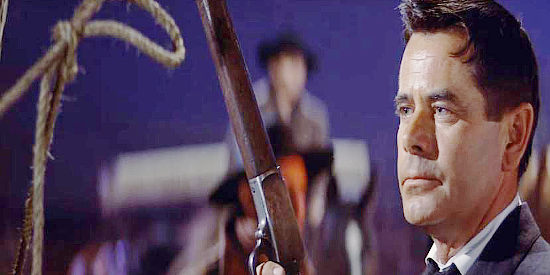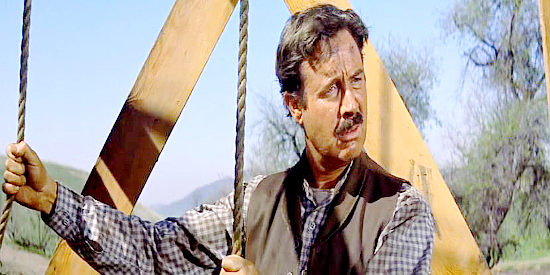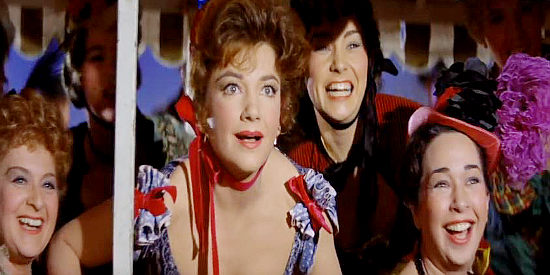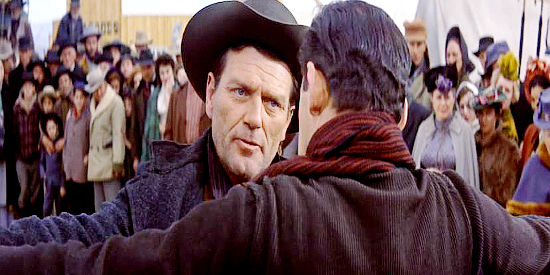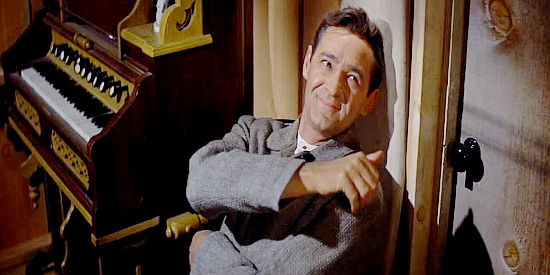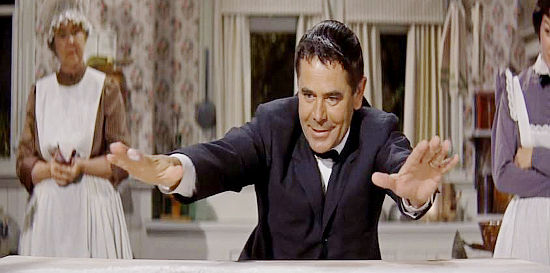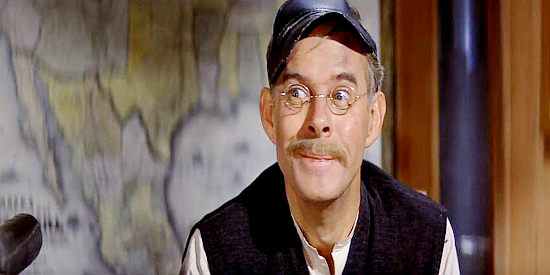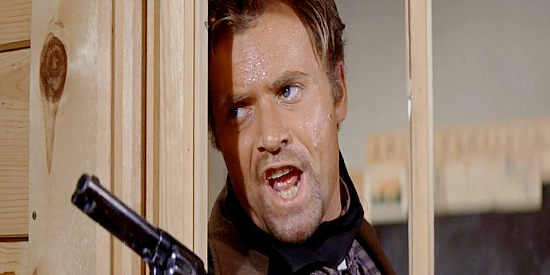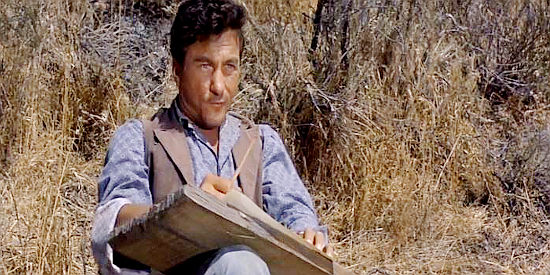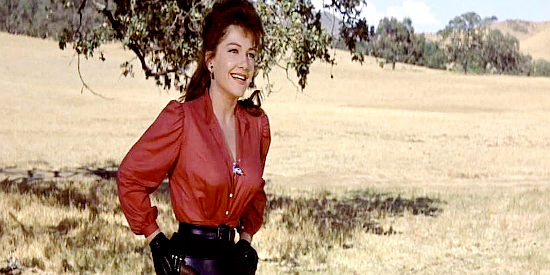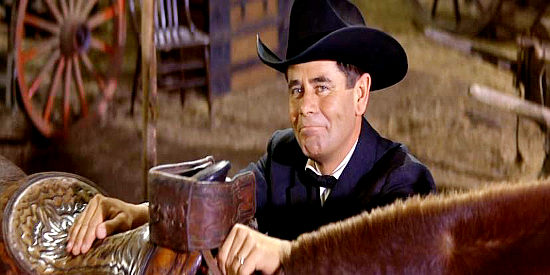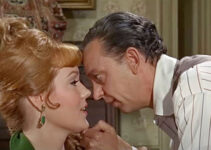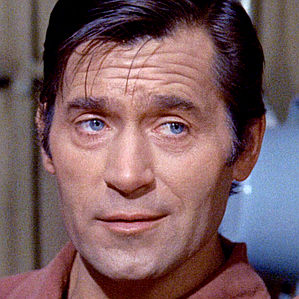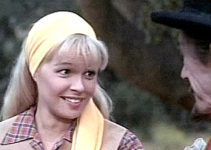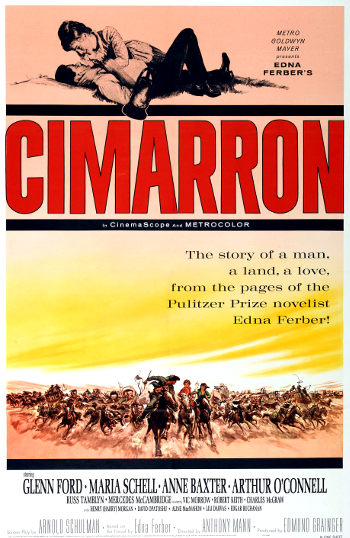 Glenn Ford plays Yancey Cravet, who marries a young lady from the East named Sabra (Maria Schell) and takes her to Oklahoma to participate in the great Oklahoma Land Rush.
Glenn Ford plays Yancey Cravet, who marries a young lady from the East named Sabra (Maria Schell) and takes her to Oklahoma to participate in the great Oklahoma Land Rush.
Yancey fails to claims the 160 acres he had his eyes on; an old lover named Dixie Lee (Anne Baxter) gets there first.
So he instead decides to enter the newspaper business, taking over for a man killed in that very same land rush.
The fact that he uses the newspaper to champion the Indians earns him very few friends. The bravery he shows in times of crisis — like when two train robbers hold a schoolhouse full of children hostage — earns him widespread respect.
But while Sabra craves stability and financial security for herself and their young son, Yancey craves adventure.
So he’s off on another land rush. Then he’s off to the Spanish-American War.
Even when he returns and promises to make up for his long absence … well, he finds that promise difficult to keep.
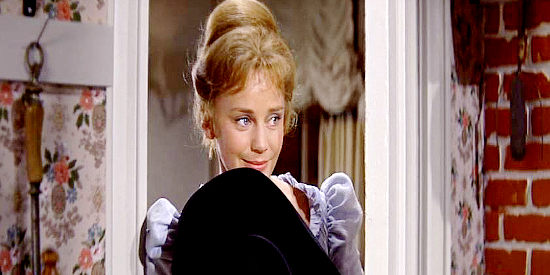
Maria Schell as Sabra Cravet, watching husband Yancey envision the Oklahoma Land Rush in Cimarron (1960)
The original 1931 version of this film, starring Richard Dix, took the Oscar for Best Picture. This, on the other hand, is an oddly disjointed movie.
Yancey is supposed to be the hero, revered for his pioneering spirit. But after a promising opening, he disappears for long stretches of the film, stretches during which viewers’sympathy swings to Sabra, who’s left alone to suffer with her loneliness, not knowing where her husband is or whether he’s still alive.
That does lead to one of the film’s better scenes, when Sabra slips into Dixie Lee’s “social club” because she suspects her husband’s former lover might know more about his whereabouts than she does.
But by the time the film ends, Sabra seems more the hero than a man who would essentially abandon his wife and child.
The cast is peppered with familiar faces, including Russ Tamblyn as the young gun Yancey can’t save, Arthur O’Connell as a hard-luck case who gets rich by striking oil, and Harry Morgan as Sabra’s right-hand man at the newspaper.
David Opatoshu also has an interesting role as the business who bankrolls Sabra’s newspaper ventures and wouldn’t mind taking Yancey’s place, if only she’d let him.
Directed by:
Anthony Mann
Cast:
Glenn Ford … Yancey Cravet
Maria Schell … Sabra Cravet
Anne Baxter … Dixie Lee
Harry Morgan … Jessie Rickey
Russ Tamblyn … The Cherokee Kid
Arthur O’Connell … Tom Wyatt
Mercedes McCambridge … Sarah Wyatt
Vic Morrow … Wes Jennings
Robert Keith … Sam Pegler
Aline MacMahon … Mrs. Mavis Pegler
Charles McGrew … Bob Yountis
David Opatoshu … Sol Levy
Lili Darvas … Felicia Venable
Edgar Buchanan … Judge Neal Hefner
Mary Wickes … Mrs. Neal Hefner
Runtime: 147 min.
Title song: “Cimarron”
sung by The Roger Wagner Choral
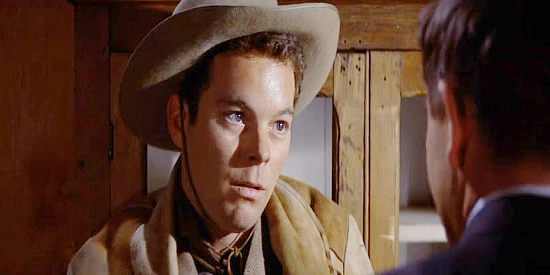
Russ Tamblyn as William Hardy, the Cherokee Kid, listening to a lecture from Yancey Cravet in Cimarron (1960)
Memorable lines:
Sabra to Yancey: “Why do they call you Cimarron?”
Mrs. Pegler: “Because he’s mean and wild and crazy. That’s what the word means.”
Sam Pegler: “How many things you been already? A gambler. A gunman. A laywer. Now you want to be a farmer?”
Yancey: “I don’t want to be a farmer. A rancher. There’s a difference.”
Sabra to her husband: “What is there in you, that hunger to be there in the middle of any excitement? You don’t know the meaning of responsibility, do you?”
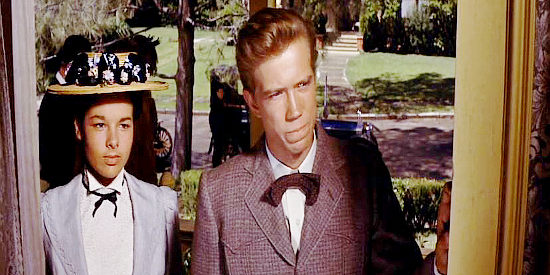
Mickie Chouteau as Rudy Red Feather with Buzz Martin as Cimarron Cravet, together in spite of Sabra’s disapproval in Cimarron (1960)
Yancey, during a debate over whether an Indian girl should be allowed to attend the Osage School: “Good, let’s keep our children’s blood pure and their heads empty.”
Sol to Sabra: “Do you know what water is to fire? That’s what sense is to love.”
Dixie to Sabra: “You shouldn’t get me confused with those kind you read about in the storybooks. You know, with a heart of gold? If I had a heart of gold, I would have sold it long ago for twice what it was worth.”
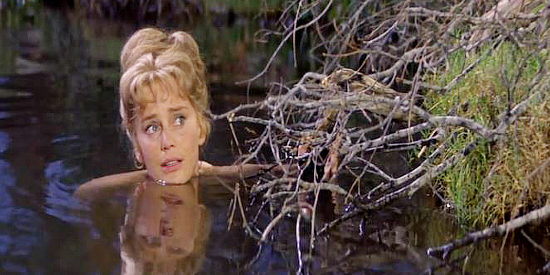
Maria Schell as Sabra Cravet, surprised when three young ruffians show up while she’s bathing in Cimarron (1960)
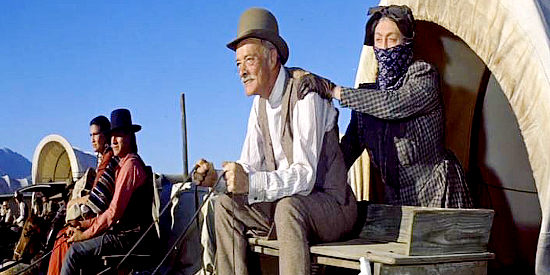
Robert Keith as Sam Pegler and Aline McMahon in wife Mavis, ready for the land rush in Cimarron (1960)
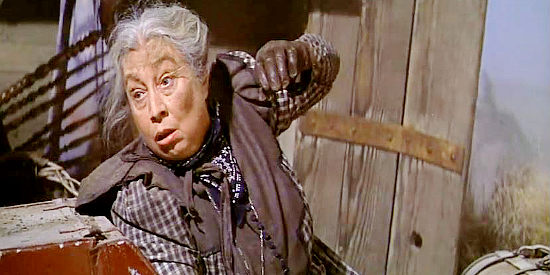
Aline MacMahon as Mavis Pegler, the elderly woman who loses her husband in the land rush in Cimarron (1960)
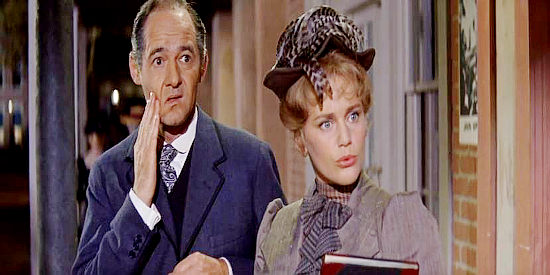
David Opatoshu as Sol Levy and Maria Schell as Sabra Cravet, reacting to Dixie’s strut in Cimarron (1960)
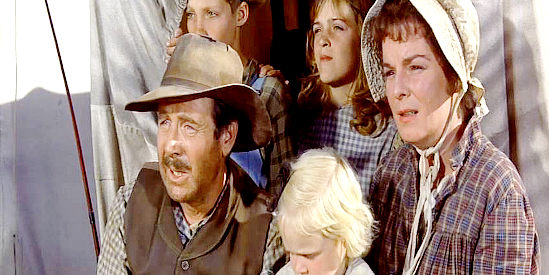
Arthur O’Connell as Tom Wyatt and Mercedes McCambridge as Sarah Wyatt, reaching the start line for the land rush in Cimarron (1960)
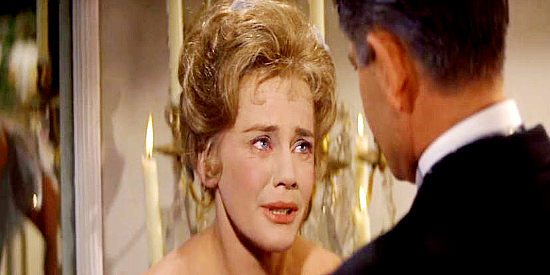
Maria Schell as Sabra Cravet, losing her already strained patience with husband Yancey in Cimarron (1960)
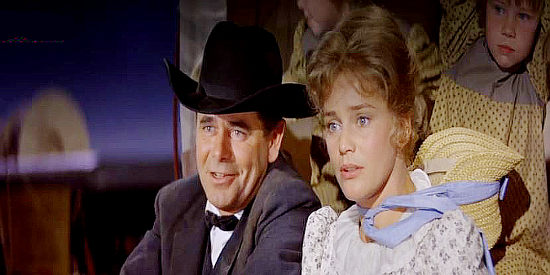
Glenn Ford as Yancey Cravet and Maria Schell as Sabra Cravet, reacting to Dixie’s appearance at the land rush in Cimarron (1960)
